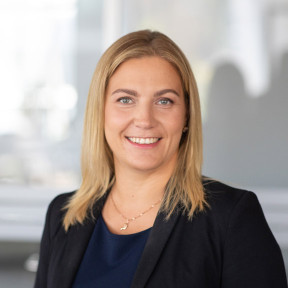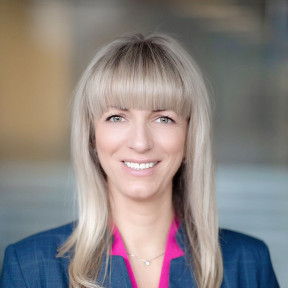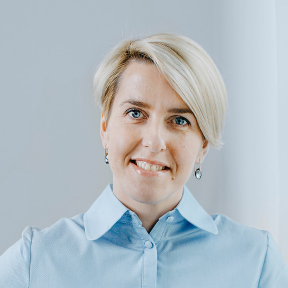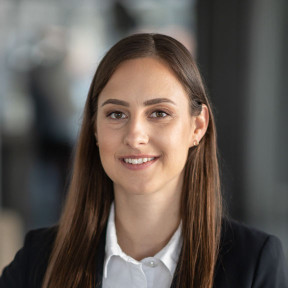INVL Sustainable Timberland and Farmland Fund II

Launched in 2020, the INVL Sustainable Timberland and Farmland Fund II (hereinafter – the Fund or STAFF II) invests in forests and agricultural land in the Baltic region and Central and Eastern Europe, seeking to manage them sustainably with a long-term view.
STAFF II is established and operating in the Grand Duchy of Luxembourg and administered by the Apex Group, one of the largest fund service providers in Europe. The investments are made in accordance with restrictions established in the legal acts of the respective country.
Reliable partner
Are you thinking about selling a forest or agricultural land that you own? Submit an enquiry regarding a sale and we will make you an offer in line with the market value.
Sustainability in our operations
We manage both timberland and farmland in compliance with global sustainable management practices. Our aim is to preserve nature for future generations and promote practices that are friendly to the environment and wildlife and that help to mitigate climate change.
Geography
The fund invests in the Baltic countries and Romania and intends to expand to other Central and Eastern European countries that belong to the European Union. Land values in this region have higher growth potential than in Western Europe or the Nordic countries.
Sustainable investments
Global sustainable management practices
We manage both forests and arable land in keeping with global sustainable management practices. Our aim is to have a positive environmental, social and governance (ESG) impact.
Green Deal goals
By investing in forest and agricultural land and using sustainable practices to manage those assets, the fund is contributing to the EU’s ambitious climate-change objectives.
Nature preservation
The unlimited duration of the fund allows us to implement a long-term sustainability strategy. We can thus contribute to the goals of conserving nature for future generations and protecting mosaic landscapes as well as flora and fauna habitats.
Our approach
We pursue a long-term return for investors by consolidating holdings of forests and agricultural land in EU countries. The assets in our portfolio, managed according to international good practices for sustainability, create value not only for our investors but also for the environment and society.
We aim to become one of the European Union’s leading funds in the area of sustainable alternative investments and to provide investors with opportunities to contribute to the preservation of nature for future generations.
We focus especially on the holistic management of assets, market best practices, and expert assessment. We operate in accordance with international investment guidelines.
International standards
We are an indirect signatory of the United Nations Principles for Responsible Investment - AB Invalda INVL signed the Principles in 2017. We invest following the 6 principles for responsible investment and aim to have a positive environmental, social and governance (ESG) impact.
We joined the United Nations Global Compact in 2021. Our 2023 Communication on Progress Report, regarding the areas of human rights, labour, environment, and anti-corruption, is available here. Older Communication on Progress Reports can be found here.
We contribute to the implementation of the United Nations Sustainable Development Goals.
The Forest Stewardship Council® (FSC®) in 2022 awarded Group Forest Management Certification to UAB Šalnupis, the company that administers our entire forest portfolio in Lithuania (Certificate No. NC-FM/COC-067275).
.jpg)
Why forests and land?
Forest and land are assets with growing demand but limited shrinking supply.
Forests are a renewable timber source and a major carbon sink. By locking in carbon dioxide, they clean the air we breathe. Wood is considered one of the most important materials for the development of the bioeconomy and is much more environmentally friendly than alternatives like cement, metals, plastics and other petroleum products.
Meanwhile, more and more arable land likely will be needed to feed the growing human population. Here, the development of agricultural technologies to increase productivity is vital.
A stable long-term return
Forests have unique traits that make them an attractive long-term investment. Total harvesting rate does not exceed growth rate.
Leasing out land brings stable income and the value of land is set to continue growing over the long term due to this asset class’s unique attributes and favourable market conditions.
Investing in forests and farmland brings a stable return. These assets are little impacted by markets for traditional asset classes, with which their correlation is small or even negative, and correlation between forests and farmland themselves is also relatively low (NORSKOG, Department of Forestry and Environmental Resources, North Carolina State University, 2020).

Frequently asked questions (FAQ)
We comply with global standards. Sustainable forest management is guaranteed by complying with the relevant sustainability standards and all national and international legislation and accords.
We take care of our employees. Our organisation ensures the economic and social wellbeing of its employees. Employment is voluntary, non-discriminatory and based on mutual agreement. We encourage employees to continuously learn and improve.
We cooperate with communities. In caring for forests, we look for economic and social benefits that can help strengthen local communities.
We manage forests meticulously. We aim to care for our forests in such a way that they can flourish for centuries and bring a wide range of benefits for people and the environment:
we have set a maximum annual rate of harvesting that does not exceed the sustainable level of forest use;
we ensure that mature and near-mature forest stands make up at least 20% of the total forest area we manage;
we protect and look after landscapes along with natural and cultural heritage;
we are committed to leaving at least 10% of owned forest we manage uncut except where necessary to maintain biodiversity or deal with the effects of a natural disaster;
we protect trees with breeding cavities, nests, loose bark and other microhabitats, as well as those distinctive for their size, age or other features (e.g., champion trees, veteran trees and multi-trunk trees);
we do not carry out felling near water bodies.
We work with farmers who undertake crop rotation and thus protect arable land from degradation. A part of our land is worked by organic farmers and farmers who employ no-till practices. We seek to sign long-term rental contracts with farmers, which let them expand their activities and create jobs in rural areas. Since 2023, we have also been afforesting less fertile land.
The value of a forest or land plot is the price that buyers are willing to pay. That is affected by many factors, and different buyers consider different criteria depending on their own objectives. Thus, the price offered for a forest or land plot can vary.
The INVL Sustainable Timberland and Farmland Fund II team carefully assesses both forest and agricultural land, giving priority to their sustainable management. If you are considering selling a forest or farmland and would like to get an offer from an experienced team whose goal is long-term sustainable asset management, contact us, using the form above to submit an enquiry.
Determining the value of a forest:
The valuation of a forest begins with analysis of its inventory, looking at trees’ species, timber quality, sanitary conditions, whether they are of harvestable age, and whether any environmental restrictions apply. The situation in the roundwood market also affects prices.
If your forest has trees of varying ages, firms that invest in felling processes and equipment and logging companies most likely will offer the highest price for the mature part of the forest, but may offer less for the part that is still growing and for young tree stands.
Determining the value of farmland:
In judging the value of agricultural land, its qualitative parameters are first assessed: its condition and fertility, accessibility, soil structure, drainage systems, and other criteria.
Process for determining a forest’s value:
To learn the preliminary value of a forest, the owner can request a forest inventory report for the holding in question from the State Forest Service, which collects and manages information on all Lithuanian forests. The final value of the forest can be determined by a professional forester.
A forest inventory reports contains:
the identification code of the cadastral object;
spatial cadastral data; geographic location, forest block number, and land plot area;
forest land-use categories (e.g., stand, cutting area, etc.);
data on dominant tree species, stand origin, productivity, stocking level, forest site, forest group and subgroup;
descriptive data for trees: forest layer, species, and species coefficient within the layer;
average age (in years) and average height;
data on forest management actions within the cadastral object.
Forestry specialists check precise forest inventory figures during an on-site review of the forest parcel.
Note that forest owners do not necessarily have to submit a request to the State Forest Service themselves. We, as registered users of the forest cadastre geographic information system, can obtain the preliminary inventory data and assess the forest you are selling to offer a fair price.
Process for determining the value of farmland:
To learn the preliminary value of farmland, the owner can request information on the plot in question from the Centre of Registers, which maintains a database of cadastral data for all arable land in Lithuania. The final value of the land can be determined by an agricultural professional.
Cadastral data for a land plot includes:
the identification code of the cadastral object;
the geographic location;
utilised agricultural area, area of water bodies, and area of drained land;
information on rights and other legal facts pertaining to the cadastral object.
Note that landowners do not necessarily have to submit a request to the Centre of Registers themselves. We can obtain the preliminary data to assess the arable land you are selling and offer a fair price from the databases we use.
Land management specialists verify cadastral data during a physical inspection of the plot.
If you are considering selling a forest or agricultural land or have already decided to do so, we recommend that you identify the market players who can provide you with information and offer fair transaction terms.
Choose a buyer. Make sure they can not just offer the highest price but also ensure proper care of the forest or land. Consider who is buying, how much information they provide about themselves, and what their business objectives are.
Fix the terms of the transaction. Typically, a preliminary sale-purchase agreement is signed that specifies the price and settlement terms for the forest or farmland as well as declarations and guarantees of the seller and the buyer.
Apply to the National Land Service for a permit to sell the forest or farmland.
Once a permit is received, sign the main sale-purchase agreement in the presence of a notary public.
Sustainability
The fund’s unlimited duration underpins a long-term sustainability strategy, one goal of which is environmental protection. We strive to manage assets in keeping with ESG and sustainable management practices, creating value for our investors and society.
We are one of the European Union’s most trusted funds working in the area of sustainable alternative investments. We create long-term benefits for nature and enable investors to contribute to protecting nature for future generations.
More detailed information about the environmental and social characteristics of the fund is available here.
The INVL Sustainable Timberland and Farmland Fund II contributes to implementing the United Nations Sustainable Development Goals (SDGs).
Key principles of sustainability we abide by in investments:
Protect the environment, be socially responsible and practice transparent governance.
Follow best market practices and the guidelines of international organisations for long-term management of forests and land.
Maintain a healthy and thriving local ecosystem which enables long-term value creation.
Forests owned by the INVL Sustainable Timberland and Farmland Fund II are managed sustainably. The companies that own the fund’s forest portfolio in Lithuania are committed to the principles and criteria of the Forest Stewardship Council® (FSC®) in their work. Testament to this is the FSC® Group Forest Management Certification (certificate NC-FM/COC-067275, license code FSC-C177006) held by UAB Šalnupis, which administers the management of the fund’s forests. The fund’s full Sustainable Forest Management Policy is available here.
A full list of the group members administered by Šalnupis is provided here.
The FSC® is an international nongovernmental organization that promotes environmentally appropriate, socially beneficial, and economically viable management of the world’s forests. To learn more, visit their website.
The fund’s sustainably managed forests:
contribute to climate change mitigation and other ESG objectives;
contribute to the development of the local economy;
provide shelter and habitats for flora and fauna to thrive;
allow local residents and tourists to enjoy nature trails for leisure and wellbeing.
Our sustainable management of forests:
meets standards for sustainably managed forests as well as international and national agreements and legislation;
ensures the social and economic wellbeing of employees;
is carried out in collaboration with local communities helping to strengthen them;
aims to allow forests to thrive for centuries and provide a range of benefits for people and the environment:
we have set a maximum annual rate of harvesting that does not exceed the sustainable level of forest use;
we ensure that mature and near-mature forest stands make up at least 20% of the total forest area we manage;
we protect and look after landscapes along with natural and cultural heritage;
we are committed to leaving at least 10% of forest we manage uncut except where necessary to maintain biodiversity or deal with the effects of a natural disaster;
we protect trees with breeding cavities, nests, loose bark and other microhabitats, as well as those distinctive for their size, age or other features (e.g., champion trees, veteran trees and multi-trunk trees);
we do not carry out felling near water bodies.
Climate change can be mitigated faster if forests are managed sustainably. When forests are left uncut and grow to natural maturity, timber resources are left unused and little can be done to replace fossil materials and other pollutants like oil, cement, metals, etc. (Holmen, 2019).

The fund’s land is worked by farmers who provide the community with good-quality, safe, wholesome agricultural and food products:
we rent land to farmers and agriculture companies whose main activity is food production;
we promote the use of some of the land we own for ecological farming;
we avoid leaving productive land uncared for;
we invest in meadows and pastures that are suitable for livestock.
Prospering farms provide people in rural areas with the income to live with dignity and preserve a way of life that is valued and loved:
to maintain a balance between small and large businesses, we rent land to both to agricultural companies and to small farmers, usually based on who worked the land before the transaction;
we rent land to farmers who are capable and have a good reputation;
we seek to work with farmers who use modern and environmentally friendly technologies;
we work with family farms and make small acquisitions to support the growth and competitiveness of family farms;
we invest in land suitable for mixed farming and encourage collaboration among the family farms in a region that combine ecological and recreational activities.
Responsible land management helps to keep the environment clean and safe, preserve the landscape and biodiversity, and maintain soil quality:
we work with farmers who conduct planned crop rotation;
we work with farmers who practice precision fertilisation;
we work with farmers who participate in agri-environment schemes;
we invest in mixed-use land and protect mosaic landscape elements.
Contact us
| Municipality | Eldership | Village | Cadastral number |
| Anykščiai d. | Andrioniškis | Sedeikiai | 3462/0001:180 |
| Anykščiai d. | Andrioniškis | Sedeikiai | 3462/0001:235 |
| Anykščiai d. | Anykščiai | Inkūnai | 3444/0001:50 |
| Anykščiai d. | Anykščiai | Smalina | 3444/0001:130 |
| Druskininkai | Viečiūnai | Mašnyčiai | 3805/0002:35 |
| Varėna d. | Kaniava | Ūta | 3855/0002:134 |
| Varėna d. | Marcinkonys | Musteika | 3838/0002:82 |
Team
Our team of forest and agricultural land managers consists of professionals with extensive experience who have contributed to the sustainable development of forest and agriculture markets in the Baltics and Central and Eastern Europe. In their investment-related careers, they have taken part in transactions for more than 40,000 hectares of forests and arable land.
Team

Martynas Samulionis

Sigita Bizulienė

Justė Gumovskienė

Gintaras Montrimavičius

Dominykas Viliūnas

Božena Šulskė

Julius Bajer

Inita Vilka

Audrius Pagojus

Domantas Bubelė
For sellers of forests and land
Are you considering selling a forest or land you own?
The fund is a reliable partner for those seeking to sell forest or agricultural land at fair market prices. Transactions are carried out in a professional and efficient manner.
Get a professional assessment of your forest or land holdings and an offer in line with market conditions – submit an enquiry and we’ll get in touch with you.
Or call us to discuss:
+370 694 91465 (Lithuania)
+371 256 17099 (Latvia)
How can we be of help to you?
We buy forests.
We buy agricultural land.
We quickly assess your plot and make an offer in keeping with the market price.
We carry out sale-purchase transactions for forest and agricultural land efficiently.
We manage forests and agricultural land sustainably.
We will preserve your forest and land
Having an unlimited duration enables the fund to focus on long-term sustainable management of forests and arable land.
Contacts:
Address: Rue Gabriel Lippmann 3, L–5365 Munsbach, Grand Duchy of Luxembourg
Address in Lithuania: Gynėjų St. 14, LT–01110, Vilnius, Lithuania
Phone number: +370 694 91 465
E-mail: sustainable@invl.com
Enquiry for sale
Important information
This page provides only generalised information which is not adapted to the individual needs of any person. It is not and may not be construed as advertising or as information that offers, recommends or otherwise encourages acquiring forestry or agricultural land or becoming a participant of the collective investment undertaking referred to on the page or in any other way or form assuming the risks associated with acquiring, holding or selling such assets.
The information on this website concerning the characteristics of the assets of the collective investment undertaking or its investment holdings (including projections of investment returns) is based solely on the opinion of persons directly and/or indirectly involved in the management of that collective investment undertaking. In expressing that opinion, the persons are acting solely in their own interests and are not guided by nor take into account the interests or needs of any other person. Therefore, any person making any decision shall do so at his/her own risk and should, at his/her own discretion and expense, make use of experts in the relevant fields in order to be able to make a decision that is appropriate for his/her individual needs. That is the only way the person making the decision can mitigate the losses that are highly likely to occur (due to an investment in the collective investment undertaking and other assets mentioned on this website).
It should be noted that the past performance of a collective investment undertaking is only indicative of its performance in the past period. Past performance is no guarantee of future performance. If the return on an investment was positive in the past, it will not necessarily be so in the future, and the value of the investment may rise or fall. The persons directly and/or indirectly involved in the management of the collective investment undertaking referred to on this page do not guarantee the profitability of investments. Investors bear the entire risk of loss on their investments.
Before acquiring any assets mentioned on this page, you should, on your own or with the help of relevant experts, assess all the applicable fees and all the risks that investing entails and read all documents carefully.
Notwithstanding any other important information, you should always invest only money that you can afford to lose.



